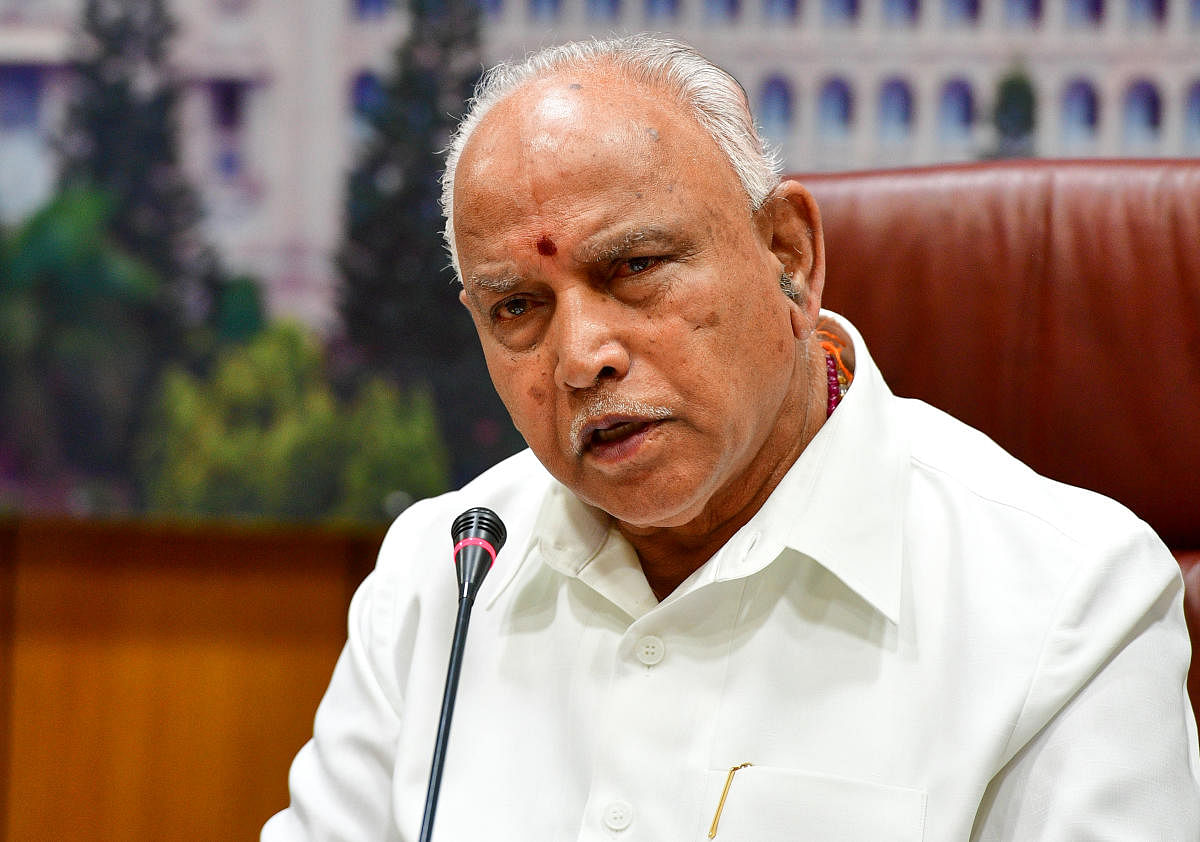
The BJP has once again assumed the reins of administration in Karnataka, on the promise of providing a stable government and good governance which the previous coalition government failed to do. The new government was sworn in with only the chief minister, and it was three weeks before 17 other ministers were sworn in. In those three weeks, the state faced the fury of unprecedented floods. Hopefully, now, with the ministry in place, governance will begin in right earnest.
While there are a number of issues on the plate, it would be wise for the government to draw up a doable agenda in the remaining 45 months of its tenure. Here are some areas impacting the lives of people that need to be addressed on priority.
Water Management
Water is critical both for agriculture and drinking purposes. Karnataka has been facing recurring droughts, affecting farm production and the livelihoods of farmers. This leads to crop loan waivers, causing stress on the state’s finances. More than the shortage of water, the real issue is poor water management. Indian agriculture is marked by inefficient use of water, primarily caused by government policies of making water available virtually free for irrigation. In urban areas, except for Bengaluru, most other towns and cities lack water-metres for individual connections and the use of water is not measured. Secondly, over-extraction of groundwater has depleted underground water resources. According to a study by the Central Ground Water Board, 69.3% of the wells in Karnataka have shown a dip in groundwater. Hence, water conservation measures like rainwater harvesting, water recycling and groundwater recharging must receive adequate attention, apart from efficient use of water.
Public Health, Sanitation
Failure to understand the importance of public health has been responsible for many preventable diseases. The repeated occurrence of dengue and chikungunya in a city like Bengaluru is proof of the neglect of public health and sanitation. Apart from the Health Department, the local bodies play a crucial role in maintenance of sanitation, which is about much more than building toilets. Public squalor, particularly in cities, must be tackled with all seriousness.
Education
The number of government schools in Karnataka has been declining while private schools are growing. The recently introduced policy of the previous government to start English medium classes in government schools seems to be attracting more students. However, the success of this experiment will depend on deploying well-trained English teachers. The problem is of much more than the medium of instruction. It relates to the quality of education and learning outcomes.
What is required is systemic reforms in education. To begin with, the state government will do well to look at the model of Kendriya Vidyalayas.
Managing Bengaluru
The inability of the state and local governments to deal with the chaotic growth of the capital city is all too visible. Three problems crying for attention are waste, water and traffic. Managing waste, which includes solid waste, liquid waste, e-waste and bio-medical waste, is getting more complicated by the day. Providing adequate water to all parts of the enlarged municipal area, especially during summer months, is proving to be a formidable task. The traffic problem in the city has reached crisis proportions. Regulating the growth of Bengaluru needs to be addressed from a regional perspective. There are a number of reports offering solutions to all these problems. What is lacking is systematic planning and the will to fix the problems. Making institutions like BBMP and BDA, steeped in corruption and inefficiency, deliver is a huge challenge.
Environmental Sustainability
If there is one lesson to be learnt from the recent floods and recurrent droughts in Karnataka, it is that we have hardly any respect for nature. Little attention is paid to climate change and the damage being caused to the environment. Deforestation, uncontrolled urbanization and increasing pollution are causing serious harm to human health. While economic development is important, it is essential to ensure that development is sustainable. Renewable energy, water conservation and afforestation must be promoted.
Revamping Administration
The key to effective delivery of services rests with an active and well-oiled bureaucracy. In recent years, the morale of the official class has sunk to low levels. Frequent transfers and political interference have adversely affected its performance. The chief minister and the chief secretary must instill confidence in the officers to work honestly and fearlessly and at the same time hold them accountable for results. It is also important to build professional capacity through training programs, especially for technical personnel.
Ease of Living
The overall objective of the government must be to make living comfortable for the people. Essentially, this means that citizens are able to carry on their lives and business smoothly, without harassment by the powers that be -- from the police constable, the inspector and the petty official to the highest authority. It could be for procuring a khata or building or driving licence or for an entrepreneur to get clearances to start a business or a school. While violators of the law must be dealt with firmly, the laws and the rules must be enforced with a human face. Secondly, basic amenities essential for performing daily chores, like proper walkways for pedestrians, streetlights and regular clearance of garbage must be ensured. Safety, particularly for women and children, when they walk the streets or move in vehicles needs special attention.
A detailed plan of action must be drawn up for each of the above points and their implementation must be monitored by assigning responsibility to appropriate authorities. Ultimately, what counts for good governance is political leadership, not only at the top but at different levels -- the minister, the legislator, the chairperson of the zilla panchayat, the mayor and the councillor. The policy direction must, however, come from the top and communicated effectively down the line.
(The writer is a former chief secretary, Government of Karnataka)